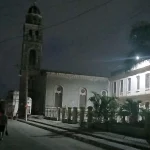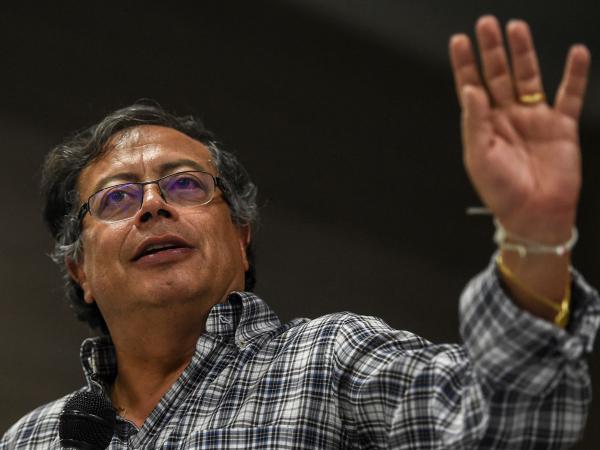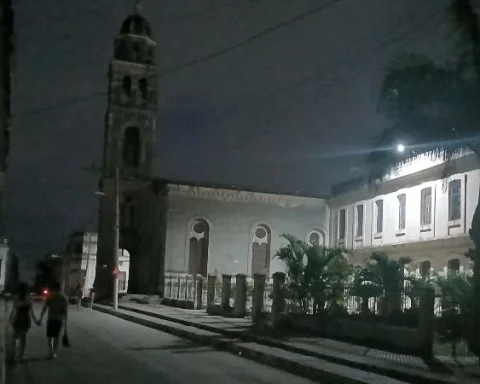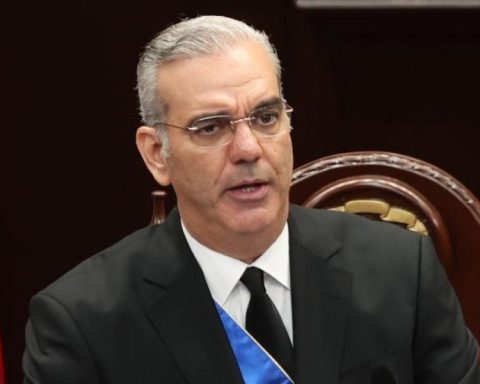The national director of Integrative Policies of the Ministry of Social Development and leader of the Popular Movement (MP) Dignity, Rafael Klejzerdefended this Sunday the official project for the installation of fairs of the popular economy throughout the country and in this way “provoke a demonopolization of the market for the production and sale of food in Argentina” so that “food is not lacking in any table of the Argentines.
“The National Project of Fairs is a very important tool for the production and commercialization of food, healthy food, free of pesticides, produced with care for the environment, generating work and that reaches the table of the people at affordable prices and not as it happens today that a large part of the community does not have all the daily meals,” said Klejzer, in a report granted to the Télam Agency.
-Klejzer, what is the National Fair Project 2023-2025?
-It is a plan, a tool, it is one more public policy that we are implementing, which joins with different programs and projects of the National Government, to face the concentration in the commercialization of food in Argentina. Today, 60 percent of the food sold in the country is sold by six supermarket chains, six…!!! And in those six chains, 20 companies sell 75 percent of what is sold. In other words, the food production and marketing business in Argentina is made up of six supermarket chains with 20 transnational food producing companies.
And in that situation?
-Faced with this, the State must be provided with all kinds of tools that tend to deconcentrate, to decompress, to demonopolize the market for the production and sale of food in Argentina. Hence the Federal Plan for Fairs: in our Argentina there are 2,471 municipalities, each one has its own food fair policy. The fair is a very important tool to exchange goods and services, to market vegetables, fruits and plans production. If those workers who are part of family farming, if they know that they have a fixed, stable, safe place to sell, such as the free fairs of Misiones, Córdoba, Chaco or Corrientes, they know that they produce during the week, they harvest on Fridays and they have a sure place to sell their production on the weekend…
-With these initiatives, these fairs, the National Government and peasant families can offer healthy food at affordable prices to the people.
-Absolutely! and without intermediaries, it is a direct production, improves prices, improves quality, zero cost, generates work, freight costs are eliminated, which today is 25 percent. In other words, it is a serious public policy for the production of healthy food, at popular prices, it generates jobs and cares for the environment. It is an official project that breaks in a certain way with the concentration that supermarkets generate today.
-Then the Government promotes the conditions so that healthy food and accessible prices, reach the provinces, the neighborhoods and produce from the family economy?
-There are thousands and thousands of farming families throughout the country, they are sovereign workers of the land, with many problems in accessing drinking water and the land to work it, they are companies recovered by their workers, they are entrepreneurs, they are cooperatives, that is: It is an organized town producing food. And what we say is that we must oil and strengthen this whole circuit of labor and healthy food production. This circuit must be strengthened, making a truly thriving economic system, with the creation of 1,200 fairs of these characteristics. It cannot be that in Argentina there is only one family going hungry!
-In the National Fairs Project, can only La Dignidad organizations participate or others as well?
-No, be careful…This is a public policy of the National State and open to all sectors. The National State does not have the authority to apply fairs, the municipalities and the provinces have it, and that is where it has to be built, together with the municipalities, food producers, social movements, the provincial authority, a very strong public policy to provoke the deconcentration of supermarkets in the sale of food.
-If the National Fairs Project materializes, how many jobs can be generated?
-4,000 jobs can be generated directly for street vendors and then each and every one of the regional economies is strengthened, it’s like throwing a stone in the river that produces multiple effects… If one generates jobs linked to production in your area of influence without logistical cost, what you generate is one, two, or three rounds of economic movement, that is, those monies that went on freight stay in that place, in that municipality. If it is in the supermarket, they stay in the accounting offices of Buenos Aires or they go to look for dollars.
-Klejzer, you are a Social Development official and you are linked to social movements, how do you see the social situation today?
-Bad, a delicate situation. The last 15 days of the inflationary process with price runs, generated 20 or 30 percent more people, families, in the popular kitchens, without the capacity to provide food. It’s an almost, almost desperate situation in terms of limits, I think people’s patience is reaching a limit… And I think that what there isn’t is a proposal, it seems to me. The Argentine people are patient, they are loyal, they tolerate, they wait, what is happening today is that there is no proposal from anyone telling them things are going to get better soon, taking from the rich to distribute to the poor. That, that’s what it’s all about, because today in Argentina the rich are richer and the poor are poorer.
-President Alberto Fernández should hit a swerve in the course of Government?.
-If you were in Europe, Alberto would be a Head of State but with a Prime Minister. Today we have a ‘prime minister’ who is (Sergio) Massa, he is the ‘prime minister’ in Argentina, with all the powers assigned to him. I belong to an internal line within the Frente de Todos (Popular Movement La Dignidad-FdT) that wants nothing to do with the economic adjustment, nothing with the International Monetary Fund (IMF), we want the privileged sectors in Argentina; it is the only way to achieve the goals of social justice.


















